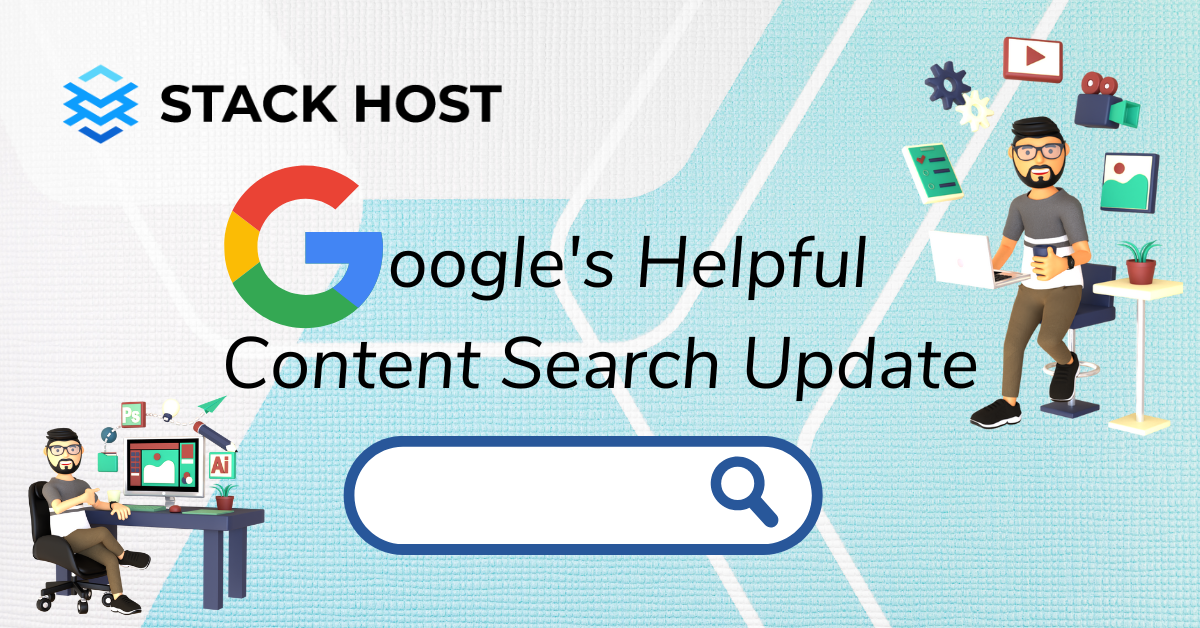Google Search is continually working to connect people with valuable information. The Google search team is releasing what we call the “helpful content update” as part of a broader effort to ensure that people see more unique, valuable content produced by people, for people, in search results.
This update aims to provide people with helpful, unique, and trustworthy information. To do this, Google is actively monitoring search terms and websites to identify content that might appear to be low quality or copied. When Google determines this type of content, it will appear lower in results, likely to negatively impact traffic and conversions. Google will also notify site owners of this content, advising them to make changes. Here’s more on the update and what creators should think about.
Summary of Google’s Helpful Content Update:
Announced: August 18, 2022
Rollout: Begins the week of August 22, 2022 (lasting up to 2-weeks)
Searchers Impacted: English users, globally
Goal: “Make it easier for people to find helpful content made by, and for, people”
What is the ‘Helpful Content Update’?
On August 18, 2022, Google announced that it would begin treating content that benefits users rather than search engines differently in its algorithms. This update was known as the “helpful content update.”
Google introduced an announcement, “More content by people, for people in Search,” in addition to the adjustment. It coincides with an article titled “What creators should know about Google’s helpful content update,” which outlines the quality standards Google is evaluating. The update will be released starting August 22, 2022, for English searches first, then globally and in other languages.
How Does it Work
Google’s new “helpful content” update targets “content that seems to have been primarily created for ranking well in search engines rather than to assist or educate people.” Google wants to reward higher-quality content created to assist and educate humans rather than just to rank well in search engines. Content created with search engines in mind is becoming increasingly discussed across social media. The purpose of this algorithm update is to provide users with higher-quality content.
Search engines will be downgraded to make room for websites that provide quality information and services to humans. Google says this is part of an ‘ongoing effort to reduce low-quality content and make finding relevant and satisfying content in search easier.’
What are examples of Unhelpful Content?
Unhelpful content may tackle a complex subject and is penned by someone without expert knowledge in that area or one that doesn’t even have a human author.
Scenario 1: “Hey, have this sophomore intern write up this best CRM guide. Keep it to 1500 words with 1 H1 and 2 H2’s.”
Scenario 2: AI-generated content – produced by any writing software that uses deep learning to auto-generate human-like text.
Is that content offering expertise? (Even if it sounds good, AI tools could write an article like this one if it wanted to, and it does sound good.) Is this article you’re reading right now (which has been written by an expert in search for 15+ years), or would you prefer to follow AI’s advice (which would also sound good)? Which content would you guess would be more beneficial to the user?
What are examples of Helpful Content?
There’s nothing new about Google’s recommendation to focus on people-first content and avoid creating content with the primary goal of optimizing search engines. However, this recommendation is usually so vague that it leaves content creators baffled rather than enlightened.
Despite knowing that ranking is only one component of a successful SEO strategy, many people think it is the only thing that matters after ranking. Shouldn’t we constantly adjust our content to ensure it stays relevant? New data is continuously entering our world, and this causes a SERP that is continually altering. If you don’t keep up, you may lose much money in paid advertising, which may lower your organic rankings. That would be savage.
How to build people-first content – Google’s advice
You can use Google’s list of questions to help you create content that is rewarded by the helpful content update. The same happened with Panda, core, and product review updates.
- Do you have an existing or intended audience for your business or site that would find the content useful if they came directly to you?
- Does your content clearly demonstrate first-hand expertise and a depth of knowledge (for example, expertise that comes from having actually used a product or service, or visiting a place)?
- Does your site have a primary purpose or focus?
- After reading your content, will someone leave feeling they’ve learned enough about a topic to help achieve their goal?
- Will someone reading your content leave feeling like they’ve had a satisfying experience?
- Are you keeping in mind our guidance for core updates and for product reviews?
How to Avoid Search Engine-First Approach – Google’s advice
Google says that if you answer ‘yes’ to the following questions, your content may be written exclusively for search engines and not for humans:
- Is the content primarily to attract people from search engines, rather than made for humans?
- Are you producing lots of content on different topics in hopes that some of it might perform well in search results?
- Are you using extensive automation to produce content on many topics?
- Are you mainly summarizing what others have to say without adding much value?
- Are you writing about things simply because they seem trending and not because you’d write about them otherwise for your existing audience?
- Does your content leave readers feeling like they need to search again to get better information from other sources?
- Are you writing to a particular word count because you’ve heard or read that Google has a preferred word count? (No, we don’t).
- Did you decide to enter some niche topic area without any real expertise, but instead mainly because you thought you’d get search traffic?
- Does your content promise to answer a question that actually has no answer, such as suggesting there’s a release date for a product, movie, or TV show when one isn’t confirmed?
Why we care
There is no doubt that Google’s helpful content update will be a significant change in the way SEOs advise clients on creating content. It is too soon to predict how much of a difference this update will make in Google’s search results, although we believe it will be significant.
Stay in touch with your hosting web service as the update is released. If necessary, we at Stack Host will assess your website’s analytics and, if necessary, help guide you to modify your content strategy based on Google’s advice.





